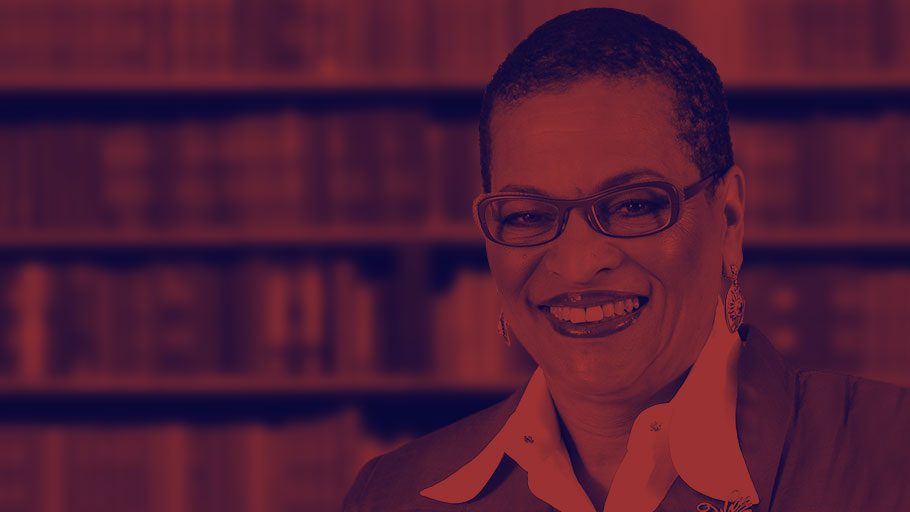President Obama did his thing when he delivered the State of the Union Address (SOU) on Tuesday night. There was confidence in his speech, some off-the-cuff humor and a little swagger when he rattled off his accomplishments and asserted that the SOU is “strong”. While I disagree with parts of the address, especially around economic issues, I was delighted with the President’s forceful tone, and with his insistence of speaking both of issues and of our toxic political climate.
Our President is, above all things, consistent. He loves these United States of America, and he always has. He believes in our unity. He believes that we can come together, transcending party lines, for the good of our nation. As he always has, he spoke of bipartisan cooperation, holding out an olive branch to House Speaker Paul Ryan (R-WI), pledging to work with him on poverty and criminal justice reform. And our president humbly shared “one of the few regrets of my presidency – that the rancor and suspicion between the parties has gotten worse instead of better”.
President Obama appeals to our common sense, to our better selves, to the notion that we are all in this together in the name of our democracy. “Democracy grinds to a halt without a willingness to compromise, or when even basic facts are contested, or when we listen only to those who agree with us. Our public life withers when only the most extreme voices get all the attention. And most of all, democracy breaks down when the average person feels their voice doesn’t matter; that the system is rigged in favor of the rich or the powerful or some special interest.”
Thus, with spirit, Obama offered important facts about economic distribution – “After years now of record corporate profits, working families won’t get more opportunity or bigger paychecks just by letting big banks or big oil or hedge funds make their own rules at everybody else’s expense. Middle-class families are not going to feel more secure because we allowed attacks on collective bargaining to go unanswered. Food Stamp recipients did not cause the financial crisis; recklessness on Wall Street did. Immigrants aren’t the principal reason wages haven’t gone up; those decisions are made in the boardrooms that all too often put quarterly earnings over long-term returns. It’s sure not the average family watching tonight that avoids paying taxes through offshore accounts.”
President Obama offered a meaty speech, with much to chew on. Much as I applauded, I was disappointed that he overstated our nation’s economic success. Yes, the unemployment rate is lower, but too many people have dropped out of the labor force. Yes, there are more jobs than there were eight years ago, but there are fewer jobs than there should be. Wages are stagnant. It would not have hurt our President to examine some of our economic weakness, especially if he highlighted the legislation he has sent to this Congress that would employ more people. Touting a strong economy genuflects to those who are enjoying this strong economy. Too many are not. I’m not sure I’d call the SOU “strong”.
The President said many of the right things about education, women’s issues, income inequality, and immigration; he could have said things differently, but one doesn’t expect policy details from a SOU Address. I guess it is too much to ask that our President address the African American community, even in a sentence. As I listened to the speech, I hoped that, in this last address, the President might acknowledge his staunchest supporters
While President Obama exuded nothing but class, it was amazing to watch the very crass House Speaker Paul Ryan behaving like a bored child. He was mostly inexpressive, but he also fidgeted, rolled his eyes, and at one point put his hand to his nose (I think – maybe he was picking it), as if he could not be but so bothered. He never clapped nor cracked a smile at a joke. He behaved as if like he didn’t want to be there.
There was more Republican crass. Are we surprised that Donald Trump was sour? Or that Marco Rubio (R-FL), the invisible Senator who deigned show up for SOU had little relevant to say? At the same time, there was some Republican class. South Carolina governor Nikki Haley offered a well-delivered and gracious partisan response to the SOU. Some of her comments echoed those of President Obama when she noted, “Some people think that you have to be the loudest voice in the room to make a difference. That is just not true. Often, the best thing we can do is turn down the volume. When the sound is quieter, you can actually hear what someone else is saying. And that can make a world of difference.”
Both Governor Haley and President Obama are asking for civility in political discourse, and the loudest voices are rejecting that. Republicans attacked Haley because she said that Republicans needed to own their part in the “erosion of public trust”. President Obama optimistically declared the SOU “strong”. Crass responses to Nikki Haley’s comments suggest that the SOU is disruptively divided and weakened by the toxic nature of political discourse.















